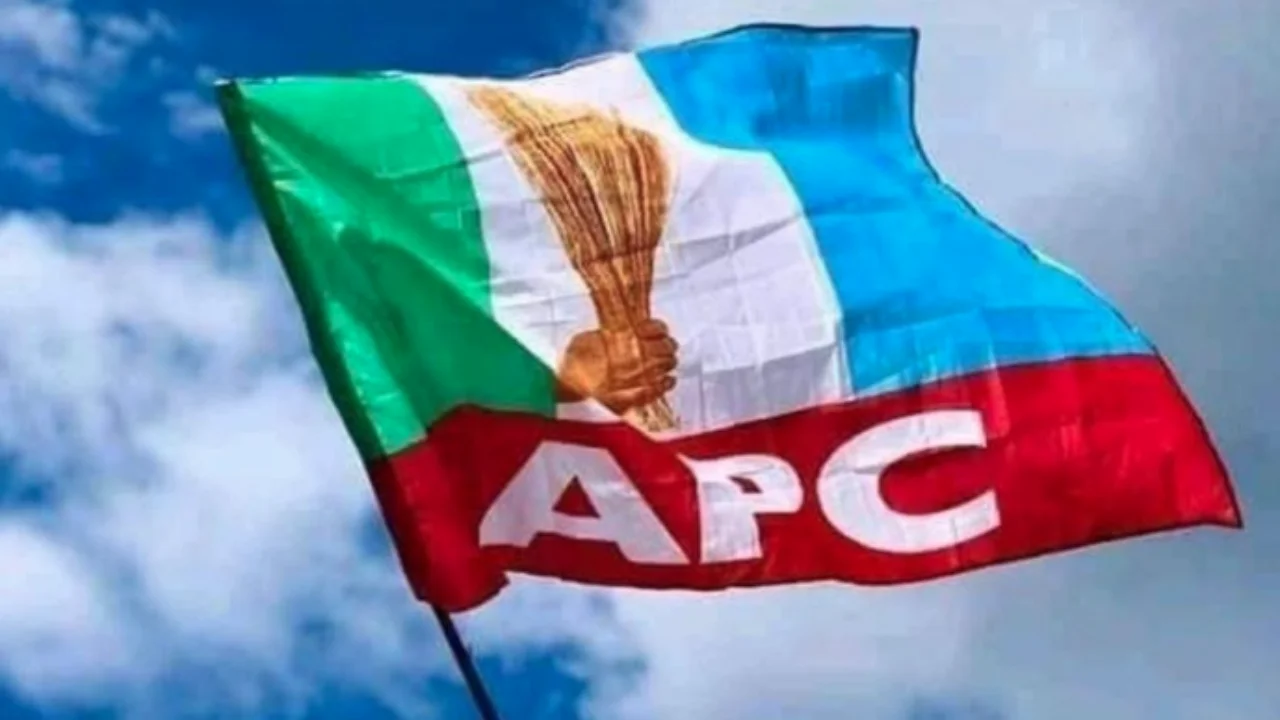Politics
APC not building one-party state, says National Sec amid wave of opposition defections

Amid mounting concerns over Nigeria’s political direction, the National Secretary of the All Progressives Congress (APC), Senator Ajibola Basiru, on Wednesday, strongly denied claims that the ruling party was driving the country toward a one-party system.
Speaking on Politics Today, a current affairs programme on Channels Television, Basiru addressed the growing criticism following high-profile defections from the opposition Peoples Democratic Party (PDP) to the APC, including those of Delta State Governor Sheriff Oborevwori, his deputy Monday Onyeme, and former Governor Ifeanyi Okowa.
Basiru was unequivocal in his response to questions about whether the APC was systematically weakening opposition forces through state-backed intimidation.
“How can we turn Nigeria into a one-party state?” he asked. “This country is not our making. The structure of its policies is not our design. The real issue is that the opposition is not taking its responsibilities seriously.”
Rather than accept blame, Basiru shifted focus to what he described as the lethargy of Nigeria’s opposition parties. He challenged both the media and the public to examine the operational strength of other political parties, pointing to the APC’s continued efforts to build a strong grassroots presence across Nigeria.
“Visit the headquarters of other parties tomorrow and see if there is any activity. Meanwhile, we are investing in a functional and efficient structure at every level from wards to local governments and states,” he said.
Read Also: Lagos Govt warns against uncertified herbal drugs, unveils bold healthcare reforms
Drawing from historical context, Basiru reminded Nigerians that the APC, once an opposition party itself, did not crumble under pressure. He recalled how President Bola Ahmed Tinubu, then a lone opposition governor in the Southwest after the 2003 elections, remained steadfast despite numerous investigations and political harassment.
“When we were in opposition, we stayed the course,” Basiru said. “Tinubu was tried by the Code of Conduct Tribunal, and despite all of that, he didn’t abandon the party. We kept expanding.”
He also responded to allegations that the APC uses federal power to coerce opposition members into joining its ranks. Citing Amílcar Cabral’s famous words—“Tell no lie, claim no easy victory”—Basiru accused opposition parties of blaming external forces rather than confronting their own internal weaknesses.
“Fifteen lawmakers from Labour, PDP, NNPP, and SDP have joined the APC in recent months. Some are new members of the National Assembly with no corruption allegations against them. So where is the harassment?” he asked.
Referencing the recent defection of Delta State political heavyweights, Basiru said the development is a sign of the APC’s growing appeal and the opposition’s waning influence in key regions.
“In Agbor two weeks ago, I witnessed the Delta Unity Group, led by the NDDC chairman and joined by the daughter of former Governor James Ibori, officially align with the APC,” he said. “Of course it caused an uproar. Delta is vital to the opposition’s political plans, and they know we’re gaining ground.”
Basiru credited the leadership of President Tinubu and the Progressive Governors’ Forum for the party’s recent momentum, likening the APC’s expansion efforts to grassroots evangelism.
“We’re out there like Jehovah’s Witnesses, pardon the comparison, knocking on doors and sharing the vision of the APC in every corner of Nigeria,” he remarked.
When asked whether defectors were under any form of duress to join the ruling party, Basiru dismissed the idea, insisting, “President Tinubu will not coerce anyone. He is a democrat to the heart.”
While the defections have reignited debates about political plurality in Nigeria, the APC’s national secretary insists that what the country is witnessing is not authoritarianism but the consequence of a disorganized opposition and a party that refuses to rest on its laurels.
Join the conversation
Support Ripples Nigeria, hold up solutions journalism
Balanced, fearless journalism driven by data comes at huge financial costs.
As a media platform, we hold leadership accountable and will not trade the right to press freedom and free speech for a piece of cake.
If you like what we do, and are ready to uphold solutions journalism, kindly donate to the Ripples Nigeria cause.
Your support would help to ensure that citizens and institutions continue to have free access to credible and reliable information for societal development.


























